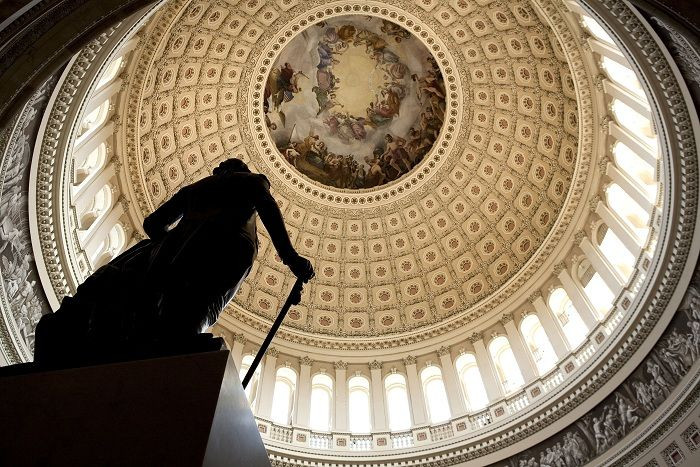Will Federal Government Shut Down? Troops And Civilian Military Employees Won't Get Paid Under Budget Fight

Senate lawmakers passed a bill Wednesday to fund the government and avert a shutdown. The vote sends an ongoing budget debate over federal funding for healthcare services to the House, where far-right Republicans have threatened to take a stand against Planned Parenthood by closing the government.
Amid the last-minute negotiations, military leaders and pro-defense lawmakers scrambled to ensure troops and civilian employees would continue to be paid if the government shuts down Thursday. If the government is forced to close, many civilian employees would face temporary furloughs, slowing down the military's administrative functions -- including healthcare, childcare, commissaries and other on-base services. Overseas operations, however, would continue.
Republicans and Democrats in Congress face a Wednesday night deadline to reach a budget deal, but some Republican leaders have said they will shut down the government over Planned Parenthood's federal funding because of the healthcare provider's abortion services. The Senate passed 78-20 Wednesday morning a short-term bill to fund the government through Dec. 11. It did not strip federal funding from Planned Parenthood.
The Pentagon has warned that military pay for troops and civilian employees would stop if the government shuts down Thursday. Paychecks are next scheduled to be sent out Oct. 15, but military paychecks are typically processed in the final days of September.
"During a government shutdown, all military personnel would continue in a normal duty status; however, they would not be paid until Congress provides funding," Deputy Defense Secretary Bob Work said in a memo to all Defense Department troops and civilian employees. "The uncertainty of the current circumstances puts our workforce in a difficult situation, and should a government shutdown occur, it could impose hardships on many employees as well as the people we serve every day."
He urged employees to wait for more news from Congress. "Your chain of command will be reaching out to you to provide additional detail on our contingency plans and your status under a potential lapse," he wrote in Friday's memo.
Congress passed legislation in 2013 to protect military pay during that year's government shutdown, but that measure has since expired, Military Times reported. Some House lawmakers this week pushed legislation that would ensure troops continue to get paid if a shutdown is triggered. Rep. Mac Thornberry, R-Tex., chairman of the House Armed Services Committee, said military employees shouldn't go without pay because lawmakers can't reach a compromise.
"We're ready to go with that if it gets to that point," Thornberry. "I hope it doesn't get to that point. I don't really think it will, but we're trying to be ready for contingencies."
Meanwhile, the "Pay Our Military Act," introduced by Rep. Mike Coffman, R-Colo., would require military pay to continue this year even if Congress doesn't pass a budget. It does not include language on future government shutdowns and military pay. "Our soldiers, airmen, sailors and Marines cannot go on furlough, so it is inexcusable for them to go without pay in the event of a government shutdown," Coffman said in a statement. "Paying our military should not be a casualty of left or right squabbling."
Military advocates have warned that even if the government remains open for business, future budget negotiations after House Speaker John Boehner, R-Ohio, resigns could further complicate defense funding issues. Boehner announced last week he would resign at the end of October.
The Military Officers Association of America said this week's budget fight "is only the tip of the political iceberg looming ahead. To start with, no one knows if the post-Boehner House leadership will take an even harder line on budget issues."
The Veterans of Foreign Wars accused Congress of shirking its duties by failing to broker a deal. "Sequestration is the most significant threat to military readiness and national security of the 21st century," VFW National Commander John A. Biedrzycki, Jr., said in a statement last week. "Despite almost universal congressional opposition to it, no member of the House or Senate has yet introduced any legislation to end it, which makes zero sense to veterans, service members or their families."
© Copyright IBTimes 2024. All rights reserved.





















